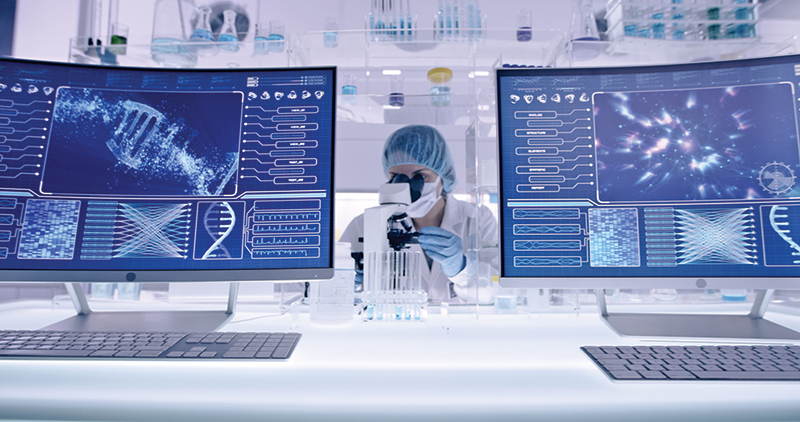Wales earns reputation as robust life sciences hub
Cari-Anne Quinn, CEO of Life Sciences Hub Wales, explains the firm’s role of building on Wales’ strengths in healthcare innovation and working with industry and academia to transform exciting ideas into reality

FP: Why has the life sciences sector grown so much in the last decade, and what kind of niche capabilities does it now feature?

CQ: The life sciences sector in Wales employs around 12,500 people and has contributed $2.4 billion. In recent years, the sector’s contribution has continued to grow, which has been absolutely fantastic. In the last couple of years, in particular, in Wales there has been a reframing of the relationship between the life sciences sector and health. Wales is absolutely part of the global marketplace and the life sciences sector as a whole is a global industry. We work with companies that are based here as well as internationally based companies to ensure that the health systems and the social care system here locally has access to technologies and new health solutions. As absolutely challenging and heartbreaking as the pandemic has been, the realignment of the relationship between health and social care on the one hand and industry on the other has enabled conversations about new ways of working and systemic change. One of the key strengths in Wales is an integrated health system that is large enough to be significant but small enough to be able to get lots of decision-makers in a room together to talk about health innovation positively and proactively. This offers a real opportunity for industry to engage, to think about new ways of working, to try out new areas of R&D, to embrace innovation and ,ultimately, to bring some of these new products and services into real situations. Another of Wales’ strengths is precision medicine: identifying disease areas and utilizing our academic strengths to work with industry to develop new solutions and techniques. We see neuroscience as among our key strengths. From an academic perspective we are strong, and research is currently underway to support the challenges of dementia.
FP: What kind of strategies and programs are you implementing to develop the sector and the greater Welsh economy?
CQ: Our main focus in terms of our broad strategic direction is supporting the identification, development and adoption of innovation. We have a strong vision of making Wales the place of choice for healthcare and wellbeing innovation. It’s about working with organizations as they work through the innovation pathway; taking ideas and challenges from a health context to understand what the health system is grappling with. Then, it’s about deciding which areas they need to develop, before working with industry directly to identify solutions that already exist or to develop R&D and innovative solutions that can evolve and be brought forward as solutions to support the health system. Think of the various stages of an innovation pathway where industry needs to work with key delivery partners in the health innovation landscape; we work alongside those organizations to guide them through the different stages and help them develop the solutions needed. We facilitate innovation, but success comes from others. It’s only by encouraging that ecosystem and all stakeholders to work together that we are going to realize change and new ways of working. This is an agenda that is being led by the Welsh Government and being driven by industry, the health service and social care. Of the 400 life sciences businesses in Wales — probably 90% — fall into the SME category. It is a buoyant ecosystem and we are seeing that a lot of these SME organizations are strong and successful exporters.
Report Contents

 Download the PDF
Download the PDF